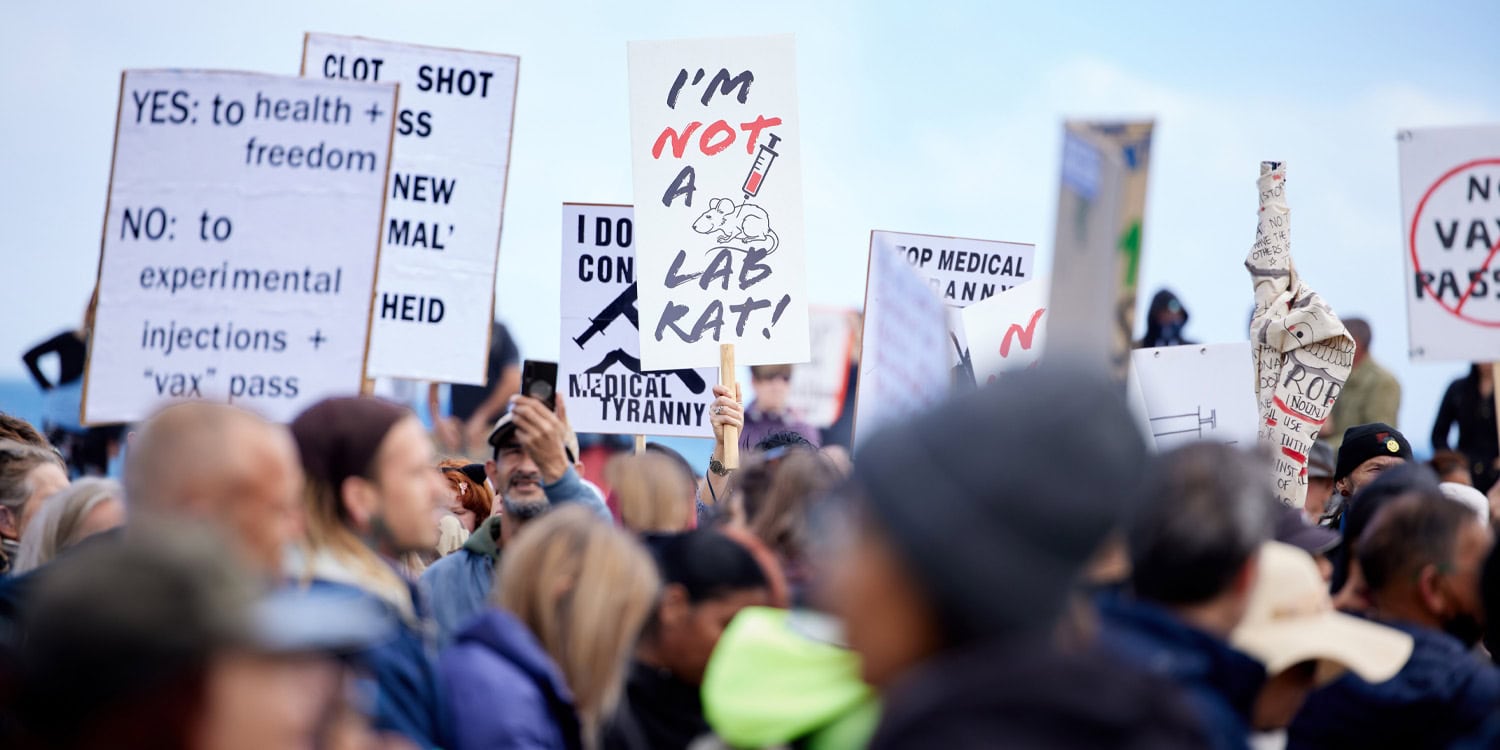A study published in Sex Roles reveals that individuals who opposed COVID-19 public health mandates were also likely to oppose abortion rights.
The COVID-19 pandemic prompted governments to balance public health measures with personal freedoms, leading to anti-mandate protests in many countries. Protesters invoked rhetoric associated with abortion rights, particularly the phrase “my body, my choice,” to argue against government-imposed restrictions such as vaccine mandates and lockdowns.
Danny Osborne and colleagues examined how attitudes toward COVID-19 mandates and abortion rights clustered together in the general population.
Prior research suggests that opposition to reproductive rights is often tied to conservative ideology, religious beliefs, and distrust of government institutions. Given that these same factors contributed to opposition to COVID-19 mandates, the researchers hypothesized that anti-mandate protesters might not support a broad application of bodily autonomy but rather selectively apply it to align with their beliefs.
Study 1 used data from 2,331 participants in the 2022 General Social Survey (GSS), a nationally representative sample of U.S. adults. Participants reported their stance on both elective and traumatic abortion, as well as their support for COVID-19 public health mandates, including mask-wearing, lockdowns, business closures, and digital contact tracing. Additional measures assessed their political ideology, religiosity, trust in institutions, and demographic factors such as age, gender, income, and education level.
Study 2 replicated this approach in New Zealand using the New Zealand Attitudes and Values Study (NZAVS), a large-scale longitudinal survey, with a sample of 33,310 participants. Alongside attitudes toward abortion and COVID-19 mandates, this study also included psychological and ideological measures, such as belief in conspiracy theories, cognitive consistency (the extent to which individuals maintain internally coherent beliefs), nationalism, and trust in science and government institutions.
The researchers applied latent profile analysis to group individuals into clusters based on shared patterns in their responses.
In the United States, three distinct ideological profiles emerged. The largest group (59%) consistently supported both abortion rights and COVID-19 mandates, reflecting a broad commitment to public health and bodily autonomy. A second group (28.4%) displayed a more selective stance, opposing elective abortion but allowing for exceptions in cases of rape, fetal anomalies, or maternal health risks. This group expressed moderate support for COVID-19 mandates but was more skeptical of measures such as digital contact tracing. The smallest and most rigid group (12.6%) opposed both abortion and government-imposed COVID-19 restrictions.
New Zealand showed a similar pattern, though with notable differences in distribution. The majority (78%) supported both abortion rights and public health measures, aligning with the country’s strong public compliance with COVID-19 policies. A smaller subgroup (11.5%) resisted digital contact tracing but otherwise endorsed mandates and reproductive rights. Another segment (7.1%) supported COVID-19 mandates while opposing abortion. Finally, a small “Anti-Mandate” group (3.4%) rejected both COVID-19 restrictions and abortion rights.
Across both studies, those in the Anti-Mandate profile were more likely to be politically conservative, religious, and distrustful of institutions. In New Zealand, this group also showed higher levels of conspiracy belief and lower cognitive consistency (i.e., ideological coherence across issues).
These findings suggest that opposition to government intervention does not necessarily translate into a broader commitment to bodily autonomy.
The study relied on self-reported attitudes, which may not fully capture the complexity of individuals’ beliefs or the influence of broader social movements.
The research, “My Body, My Choice? Examining the Distinct Profiles Underlying Attitudes Toward Abortion and COVID-19 Mandates”, was authored by Danny Osborne, Joaquin Bahamondes, Eden V. Clarke, Deborah Hill Cone, Kieren J. Lilly, Morgana Lizzio-Wilson, Eduardo J. Rivera Pichardo, Nicole Satherley, Natalia Maria Simionato, Emma F. Thomas, Elena Zubielevitch, and Chris G. Sibley.




